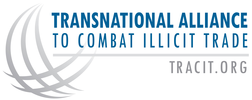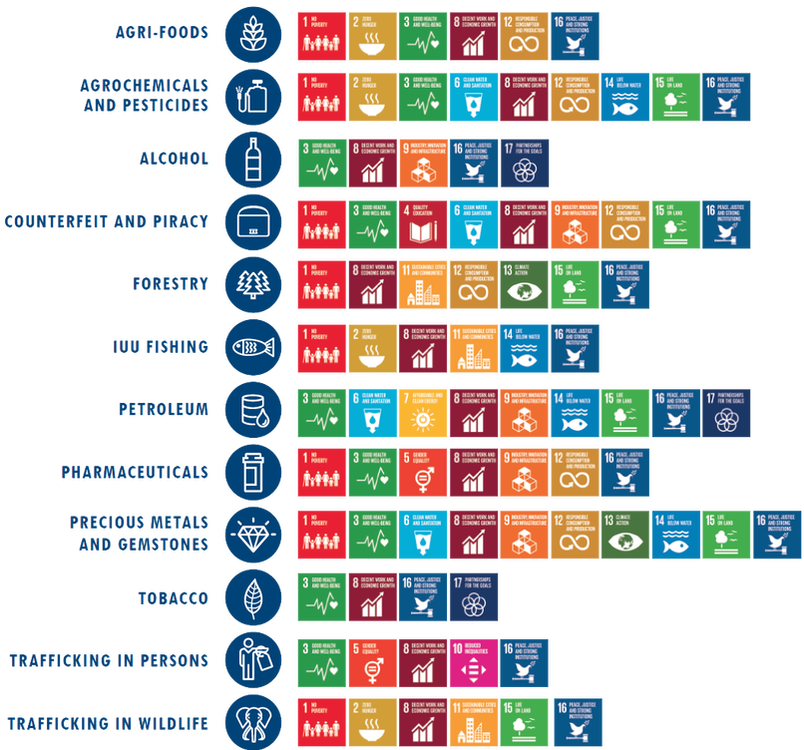Illicit Trade and the UN Sustainable Development Goals (SDGs)From smuggling, counterfeiting and tax evasion, to the illegal sale or possession of goods, services, humans and wildlife, illicit trade is compromising the attainment of the UN SDGs in significant ways, crowding out legitimate economic activity, depriving governments of revenues for investment in vital public services, dislocating millions of legitimate jobs and causing irreversible damage to ecosystems and human lives.
Mapping the Impact of Illicit Trade on the Sustainable Development Goals
Despite the recognition of international trade as an important means to achieve the SDGs, insufficient attention has been given to the substantial impact that illicit trade has on holding back progress. In order to help governments and business better understand how their efforts to achieve sustainable development must account for the negative forces of illicit trade, this study maps the 17 UN SDGs against the following sectors: agri-foods, alcohol, fisheries, forestry, petroleum, pharmaceuticals, precious metals and gemstones, pesticides, tobacco, wildlife and all forms of counterfeiting and piracy. These sectors were chosen because they participate significantly in international trade and they are particularly vulnerable to illicit trade. Trafficking in persons is also examined as a particularly abhorrent phenomenon affecting supply chains and basic human rights as well as contributing to illicit trade practices. TRACIT would like to thank the Secretariat of the UN Conference on Trade and Development (UNCTAD) for hosting the Dialogue on Illicit Trade and the Sustainable Development Goals, and assisting with sharing the study to UNCTAD Member States as part of the publication’s public launch that took place in Geneva, Switzerland, on 18 July 2019. |
|
|
Featured events
|

